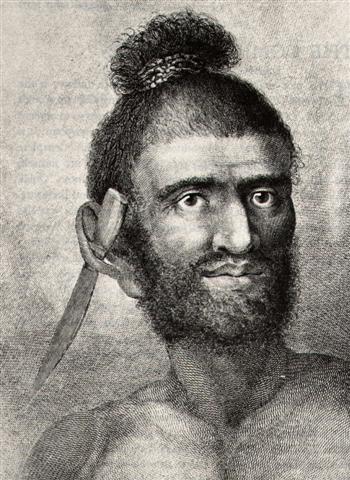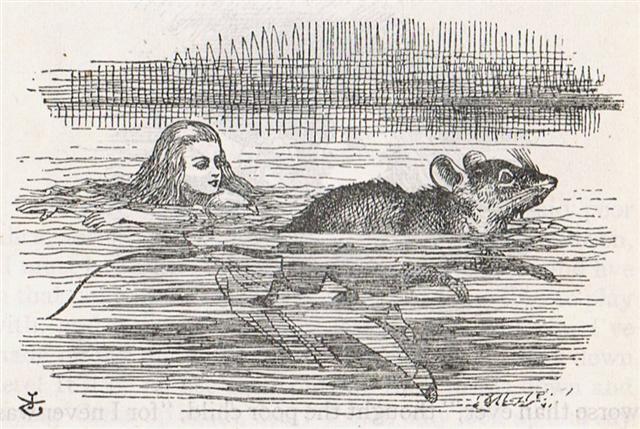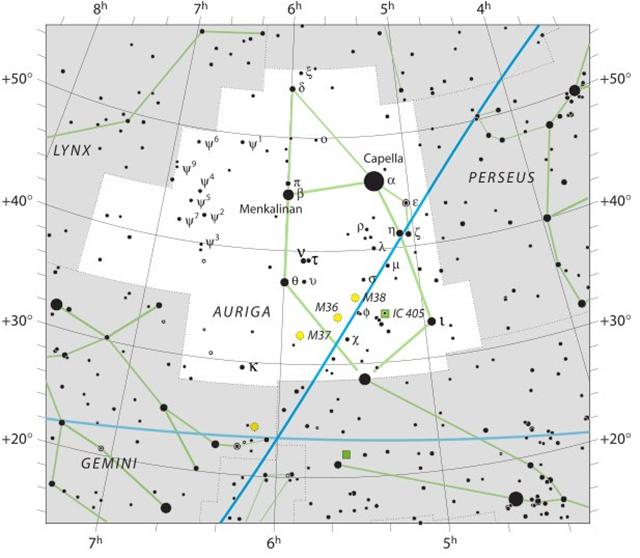10 days after 'breaking the coconut'
could therefore correspond to November 22
(326) + 10 = 336 (= 48 weeks) as judged from
the nakshatra place of the Full Moon.
| tapamea tagata kua iri |
ki te pa |
kua hua |
ki te kotiga |
 |
 |
 |
 |
| Ca3-9 |
Ca3-10 (61) |
Ca3-11 |
Ca3-12 (63) |
|
Iri. 1. To go up; to go in a boat on the sea (the surface of which gives the impression of going up from the coast): he-eke te tagata ki ruga ki te vaka, he-iri ki te Hakakaiga, the men boarded the boat and went up to Hakakainga. 2. Ka-iri ki puku toiri ka toiri. Obscure expression of an ancient curse. Vanaga. Iri-are, a seaweed. Vanaga.
In Japanese, I remember, deguchi was a door of exit
... The old year has to pass through the 'door' marked 'exit' (deguchi) and in symbolic writing we therefore find a sign saying: 'mountain upon mountain' (i.e. an extremely old person) and 'mouth':
 
while iriguchi was the entrance door.

Tariga pogeha, tariga pó, sordo.

| ARIES: |
| Ashvini wife of the Ashvins |
β and γ Arietis Sheratan and Mesarthim |
Horse's head |
April 17 (107) |
| Bharani the bearer |
35, 39, and 41 Arietis Musca Borealis |
Yoni, the female organ of reproduction |
May 1 (121) |
| TAURUS: |
| Krittikā the nurses of Kārttikeya |
M 45 Tauri The Pleiades |
Knife or spear |
May 15 (135) |
| Rohini the red one |
α Tauri Aldebaran |
Cart or chariot, temple, banyan tree |
May 28 (148) |
|
|
CLOSE TO THE FULL MOON: |
|
4h (60.9)
JĪSHUĬ = λ Persei (60.7)
COR CAROLI (α Canum Ven.) |
υ Persei (61.2) |
BEID (Egg) = ο¹ Eridani (62.2), μ Persei (62.8)
VINDEMIATRIX ( ε Virginis) |
Al Dabarān-2 (The Follower)
HYADUM I = γ Tauri (63.4)
*22.0 = *63.4 - *41.4 |
|
CLOSE TO THE SUN: |
| Nov 19 |
20 (324) |
21 |
22 |
| ºNov 15 |
16 (320) |
17 |
18 |
|
16h (243.5)
ACRAB (Scorpion) = β Scorpii, JABHAT AL ACRAB (Forehead of the Scorpion) = ω Scorpii (243.3), θ Lupi, RUTILICUS = β Herculis (243.5), MARFIK (Elbow) = κ Herculis (243.7), φ Herculis (243.8) |
ψ Scorpii (244.6), LESATH (Sting) = ν Scorpii (244.8) |
χ Scorpii (245.1), YED PRIOR (Hand in Front) = δ Ophiuchi, δ Tr. Austr. (245.5) |
YED POSTERIOR (Hand Behind) = ε Ophiuchi, RUKBALGETHI SHEMALI (Northern Knee of the Giant) = τ Herculis (246.6). δ Apodis (246.7), ο Scorpii (246.8) |
| kiore i te henua |
tapamea - tagata hoi hatu |
ki te ariki |
kiore i te henua |
 |
 |
 |
 |
| Ca3-13 (64) |
Ca3-14 |
Ca3-15 |
Ca3-16 |
|
Hoki. To return, to go back, to
come back; ka hoki ki rá, go back there! ana oho koe ki
Hiva, e hoki mai ki nei, if you go to the mainland, do come back
here again. Vanaga. 1. Also, what; ki ra hoki, precisely
there; pei ra hoki, similitude, likeness; pei ra hoki ta
matou, usage. P Pau.: hokihoki, often. Mgv.: hoki,
also, and, likewise. Mq.: hoi, surely. Ta.: hoi, also,
likewise. 2. To return, to turn back, to draw back, to give back, to
tack; mau e hoki mai, to lend; hoki hakahou, to carry
back; hoki amuri, to retrograde; hakahoki, to bring
back, to send back, to carry back, to restore, to renew, to revoke,
to remove, to dismiss, to pay, to pardon, to compress; hakahokia,
given up; hakahokihaga, obligation. P Pau.: hokihoki,
to persist, to insist; fakahoki, to give back. Mgv.: hoki,
to return, to retrace one's steps; oki, to return, to come
back. Ta.: hoi, to return, to come back. Ta.: mahoi,
the essence or soul of a god. Churchill.
Hatu. 1. Clod of earth; cultivated land;
arable land (oone hatu). 2. Compact mass of other substances:
hatu matá, piece of obsidian. 3. Figuratively: manava
hatu, said of persons who, in adversity, stay composed and in
control of their behaviour and feelings. 4. To advise, to command.
He hatu i te vanaga rivariva ki te kio o poki ki ruga ki te
opata, they gave the refugees the good advice not to climb the
precipice; he hatu i te vanaga rakerake, to give bad advice.
5. To collude, to unite for a purpose, to concur. Mo hatu o te
tia o te nua, to agree on the price of a nua cape. 6.
Result, favourable outcome of an enterprise. He ká i te umu mo te
hatu o te aga, to light the earth oven for the successful
outcome of an enterprise. Vanaga. 1. Haatu, hahatu,
mahatu. To fold, to double, to plait, to braid; noho hatu,
to sit crosslegged; hoe hatu, clasp knife; hatuhatu,
to deform. 2. To recommend. Churchill. In the Polynesian dialects
proper, we find Patu and Patu-patu, 'stone', in New
Zealand; Fatu in Tahiti and Marquesas signifying 'Lord',
'Master', also 'Stone'; Haku in the Hawaiian means 'Lord',
'Master', while with the intensitive prefix Po it becomes
Pohaku, 'a stone'. Fornander. |
|
CLOSE TO THE FULL MOON: |
| HYADUM II = δ¹ Tauri (64.2) |
Net-19 (Crow)
AIN (Eye) = ε Tauri, θ¹ Tauri, θ² Tauri (65.7) |
No star listed (66) |
No star listed (67) |
|
CLOSE TO THE SUN: |
| Nov 23 (327) |
24 |
25 |
26 |
| ºNov 19 |
20 (324) |
21 |
22 |
|
Heart-5 (Fox)
σ Scorpii (247.0), HEJIAN = γ Herculis (247.2), ψ Ophiuchi (247.7) |
ρ Ophiuchi (248.1), KAJAM (Club) = ω Herculis (248.3), χ Ophiuchi (248.5), SHE LOW (Market Tower) = υ Ophiuchi, Tr. Austr. (248.7), ζ Tr. Austr. (248.8) |
Al Kalb-16 (The Heart) / Jyeshtha-18 (Eldest) / ANA-MUA-1 (Entrance pillar)
ANTARES = α Scorpii (249.1), MARFIK (Elbow) = λ Ophiuchi, φ Ophiuchi (249.5), ω Ophiuchi (249.8) |
γ Apodis (250.1), σ Herculis (250.3), θ Tr. Austr. (250.6), τ Scorpii (250.7) |
The Sun was due to return (hoki) at glyph number 3-14 (65), alluding to day 65 after 300 and to 3.14 (= 22 / 7).
... There was no water in the village. The lakes and rivers were dry. Raven and Crow, two young girls who were having their first menstrual courses, were told to go and draw water from the ocean. Finding the journey too long, Raven decided just to urinate into her basket-bucket. She decieved no one and was severly scolded. Crow returned much later but with drinking water. As a punishment, Raven was condemned never to find water in the summer; only in winter would she find something to drink. For that reason the Raven never drinks during the hot months; she speaks with a raucous voice because of her dry throat ...
... He was moreover confronted with identifications which no European, that is, no average rational European, could admit. He felt himself humiliated, though not disagreeably so, at finding that his informant regarded fire and water as complementary, and not as opposites. The rays of light and heat draw the water up, and also cause it to descend again in the form of rain. That is all to the good. The movement created by this coming and going is a good thing. By means of the rays the Nummo draws out, and gives back the life-force. This movement indeed makes life. The old man realized that he was now at a critical point. If the Nazarene did not understand this business of coming and going, he would not understand anything else. He wanted to say that what made life was not so much force as the movement of forces. He reverted to the idea of a universal shuttle service. 'The rays drink up the little waters of the earth, the shallow pools, making them rise, and then descend again in rain.' Then, leaving aside the question of water, he summed up his argument: 'To draw up and then return what one had drawn - that is the life of the world' ...
During the preceding 10 days the 'rat' (kiore) evidently was united with the earth (hatu).
 |
8 |
 |
| Ca3-4 (55) |
Ca3-13 (64) |
 |
327 |
29 |
 |
| Ca3-14 (65) |
Cb2-6 (422) |
|
AIN (*65) |
ALCYONE (*56) |
I.e., during 10 days counted from Tau-ono the Rain (the Rat) united sky and earth:
... In South America the rainbow has a double meaning. On the one hand, as elsewhere, it announces the end of rain; on the other hand, it is considered to be responsible for diseases and various natural dis[-]asters. In its first capacity the rainbow effects a disjunction between the sky and the earth which previously were joined through the medium of rain. In the second capacity it replaces the normal beneficient conjunction by an abnormal, maleficient one - the one it brings about itself between sky and earth by taking the place of water ...
... In China, with Capricornus, Pisces, and a part of Sagittarius, it [Aquarius] constituted the early Serpent, or Turtle, Tien Yuen; and later was known as Hiuen Ying, the Dark Warrior and Hero, or Darkly Flourishing One, the Hiuen Wu, or Hiuen Heaou, of the Han dynasty, which Dupuis gave as Hiven Mao. It was a symbol of the emperor Tchoun Hin, in whose reign was a great deluge; but after the Jesuits came in it became Paou Ping, the Precious Vase. It contained three of the sieu, and headed the list of zodiac signs as the Rat, which in the far East was the ideograph for 'water', and still so remains in the almanacs of Central Asia, Cochin China, and Japan ...

Then, in December 2 (4 * 84) the Lono effigy was set off on its circuit:
... The
correspondence between the winter
solstice and the kali'i rite
of the Makahiki is arrived at
as follows: ideally, the second
ceremony of 'breaking the coconut',
when the priests assemble at the
temple to spot the rising of the
Pleiades, coincides with the full
moon (Hua tapu) of the
twelfth lunar month (Welehu). In
the latter eighteenth century, the
Pleiades appear at sunset on 18
November. Ten days later (28
November), the Lono effigy
sets off on its circuit, which lasts
twenty-three days, thus bringing the
god back for the climactic battle
with the king on 21 December, the
solstice (= Hawaiian 16 Makali'i). The
correspondence is 'ideal' and only
rarely achieved, since it depends on
the coincidence of the full moon and
the crepuscular rising of the
Pleiades ...
Hawaiian Lono should transcribe into Easter Island Rogo:
| tapamea - tagata rima iri |
te henua te hokohuki |
te kava |
te kiore i te henua |
 |
 |
 |
 |
| Ca3-17 (68) |
Ca3-18 |
Ca3-19 |
Ca3-20 → Dramasa |
|
Kava. 1. Sour; salty: vai kava, saltwater, sea; te kava o te haíga, acrid underarm smell; tagata kava - tagata kakara i te kava, man with smelly armpits. 2. He-kava te haha, to be thirsty. 3. To turn sour, to become embittered, bad-tempered, exasperated (used with manava): tagata manava kava, bad-tempered, angry man. Vanaga. Bitter, salt; vai kava, brackish water; hakakava, to embalm; kavakava, acid, sharp, bitter, salt, spiritous, vinegar, poisonous, disagreeable; akavakava, to make sharp; hakakavakava, to make acid. P Pau.: kava, disagreeable to the taste; kavakava, acid, sharp. Mgv.: kava, to be bitter, sour, acid, salt. Mq.: kava, bitter. Ta.: ava, bitter, acid, salt. Kavahia: 1. Comfort, comfortable, to feast; hakakavahia, comfort, comfortable. 2. Repulsive (of food), disgusted; hakakavahia, repulsion. Kavakava, rib; moi kavakava, a house god G. P Mgv.: vakavaka, the breast. Mq.: vakavaka, vaávaá, rib. Ma.: wakawaka, parallel ridges. We shall need all the available material in order to determine the germ sense of this word. Sa.: va'ava'a, the breast-bone of a bird; fa'ava'a, the frame as of a slate. To.: vakavaka, the side. Fu.: vakavaka, the side below the armpit. Ha.: hoowaa, to make furrows. In all these we may see the idea of ridge or depression, or of both, as primal (Rapanui, Samoa, Marquesas, Maori, Hawaii), and as secondary the part of the body where such appearances is common (Mangareva, Tonga, Futuna). Churchill. Mgv.: kava, the pepper plant and the drink made therefrom. Ta.: ava, id. Mq.: kava, id. Sa.: 'ava, id. Ma.: kawa, a pepper. Kavakava, a fish. Sa.: 'ava'ava, id. Kavapui, a tree. Ta.: avapuhi, a fragrant plant. Mq.: kavapui, wild ginger. Sa.: 'avapui, id. Ha.: awapuhi, id. Churchill. Mq.: ava, a small fish of sweet water. Sa.. 'ava'ava, a small fish. Ha.: awa, a fish. Kakava, burnt. Sa.: 'a'ava, very hot. Churchill. |
| CLOSE TO THE FULL MOON: |
|
Rohini-4 (The Red One) / Pidnu-sha-Shame-4 (Furrow of Heaven) / ANA-MURI-2 (Rear pillar - at the foot of which was the place for tattooing)
ALDEBARAN = α Tauri (68.2), THEEMIN = υ² Eridani (68.5) |
No star listed (69) |
No star listed (70) |
TABIT = π³ Orionis (71.7), π² Orionis (71.9)
320 (South Pole star, Dramasa) - 71 (Tabit) = 249 (Antares) |
| CLOSE TO THE SUN: |
| Nov 27 |
28 |
29 (333) |
30 |
| ºNov 23 (327) |
24 |
25 |
26 |
| HAN = ζ Ophiuchi (251.0) |
ζ Herculis, η Tr. Austr. (252.1), η Herculis, β Apodis (252.5) |
ATRIA = α Tr. Austr. (253.9) |
Tail-6 (Tiger)
WEI (Tail) = ε Scorpii, η Arae (254.3), DENEBAKRAB = μ Scorpii (254.7) |
| tagata tuu rima ki ruga |
te maitaki |
te henua |
Rei hata ia |
tagata rogo |
 |
 |
 |
 |
 |
| Ca3-21 |
Ca3-22 (73) |
Ca3-23 |
Ca3-24 |
Ca3-25 |
|
Rogo. Rogorogo: Originally, 'orators, bards' of Mangareva. Borrowed into the Rapanui language in 1871, it came to generically signify the wooden tablets incised with glyphs, the writing system itself, and the respective inscriptions. Earlier the term ta was used for the writings. Fischer. Mgv.: rogouru, ten. Mq.: onohuu, okohuu, id. Churchill. |
| CLOSE TO THE FULL MOON: |
|
π4 Orionis (72.1), ο¹ Orionis (72.4), π5 Orionis (72.8)
*31.0 = *72.4 - *41.4 |
π¹ Orionis (73.0), ο² Orionis (73.4), HASSALEH = ι Aurigae (73.6), π6 Orionis (73.9)
*32.0 = *73.4 - *41.4 |
ALMAAZ (The Male Goat) = ε Aurigae (74.7), HAEDUS I = ζ Aurigae (74.8) |
HAEDUS II = η Aurigae (75.9) |
5h (*76.1)
ε Leporis (76.0), CURSA (Footstool) = β Eridani (76.4), λ Eridani (76.7)
*35.0 = *76.4 - *41.4 |
| CLOSE TO THE SUN: |
| Dec 1 |
2 (336) |
3 |
4 |
5 |
| ºNov 27 |
28 (332 = 322 + 10) |
29 |
30 |
ºDec 1 (335) |
|
ι Ophiuchi (255.3), GRAFIAS = ζ Scorpii (255.4)
*214.0 = *255.4 - *41.4 |
κ Ophiuchi (256.2), ζ Arae (256.5), ε Arae (256.8), CUJAM (Club) = ε Herculi (256.9) |
No star listed (257) |
17h (*258.7)
ARRAKIS = μ Draconis (258.7) |
Mula-19 (The Root)
SABIK (The Preceding One) = η Ophiuchi (259.7), η Scorpii (259.9) |

|
















